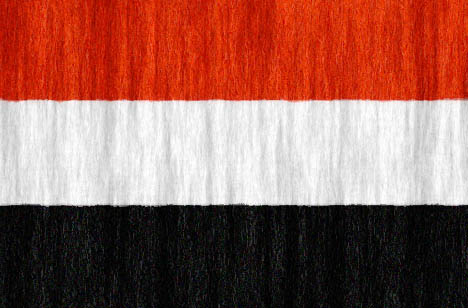AFP
Aden
A Yemen ceasefire appeared to have collapsed yesterday as government forces captured two towns from rebels and an allied Arab coalition accused insurgents of escalating the conflict by firing ballistic missiles.
The truce has been repeatedly violated and the Saudi-led coalition warned it was close to abandoning the agreement, aimed at helping parallel UN-sponsored peace talks which opened on Tuesday in Switzerland.
Delegates at the peace talks being held behind closed doors did not meet yesterday as the rebels snubbed a morning meeting.
“Last night, they already expressed reservations,” said a member of the government delegation, requesting anonymity.
Forces loyal to President Abd-Rabbo Mansour Hadi and allied tribesmen yesterday captured Hazm, the capital of northern Jawf province, after making significant gains in the neighbouring region of Marib, tribal sources said.
On Thursday, government troops captured the border town of Haradh after crossing over from Saudi Arabia, where they have been trained and equipped, military sources said.
About 1,000 soldiers are involved in the operation in Haradh, an official said, adding that “intensive fighting took place” in the town, which has a population of around 25,000.
He said dozens of renegade troops loyal to ousted president Ali Abdullah Saleh and allied with the Iran-backed Shia Houthi rebels had been killed.
The advancing force has reached just a few kilometres away from the Red Sea port of Midi, which has been under rebel control since 2010, military sources said.
Also yesterday, pro-Hadi forces captured Jabal al-Salb area in Nihm district, sources in the pro-government Popular Resistance militia and witnesses said.
It was the loyalists’ first territorial advance in Sanaa province.
The coalition, meanwhile, said Saudi air defences had intercepted a ballistic missile fired from Yemen and that a second missile struck a desert area east of the Saudi city of Najran.
It warned that the ceasefire would not hold if such violations persisted.
Although the alliance wants the Switzerland peace talks to succeed, “it will not adhere to the truce for long given the threat to the kingdom’s territory”, it said.
A spokesman for troops loyal to Saleh acknowledged firing two ballistic missiles.
Clashes have been common along the border with Saudi Arabia, where rebel strikes have killed more than 80 people since March when the coalition campaign in support of the government began.
In 2014, the Houthis advanced from their northern strongholds before occupying government buildings in Sanaa in September that year and forcing Hadi into exile in Saudi Arabia months later.
In mid-November this year, Hadi returned to second city Aden which he declared the provisional capital.
Under cover of coalition warplanes and backed by Arab soldiers and heavy weaponry, pro-government fighters have recaptured four southern provinces and Aden since July.
But the rebels still hold the capital and attempts by pro-Hadi forces to retake the strategic province of Taez have failed.
In Switzerland, the two sides on Thursday agreed a deal to immediately resume humanitarian aid to Taez city, the United Nations said.
UN envoy Ismail Ould Cheikh Ahmed welcomed the agreement as “a major step forward that will ensure immediate action to alleviate the human suffering of the Yemeni people”.
“A large UN convoy, carrying essential humanitarian supplies, reached the most affected districts of the city of (Taez) and will start distributing assistance to those in need in the coming days,” he said.
But a local relief group, the Humanitarian Relief Coalition, said no UN aid had reached the city, accusing rebels of blocking aid delivery to areas where Hadi loyalists are holed up.
The UN said issues on the agenda at the talks in Switzerland over the coming days would include developing a plan for a sustainable ceasefire and further prisoner releases.
On Thursday, pro-government forces and rebels completed an exchange of hundreds of prisoners in the southern province of Lahj.
More than 5,800 people have been killed in Yemen—about half of them civilians—and more than 27,000 wounded since March, according to the UN.

